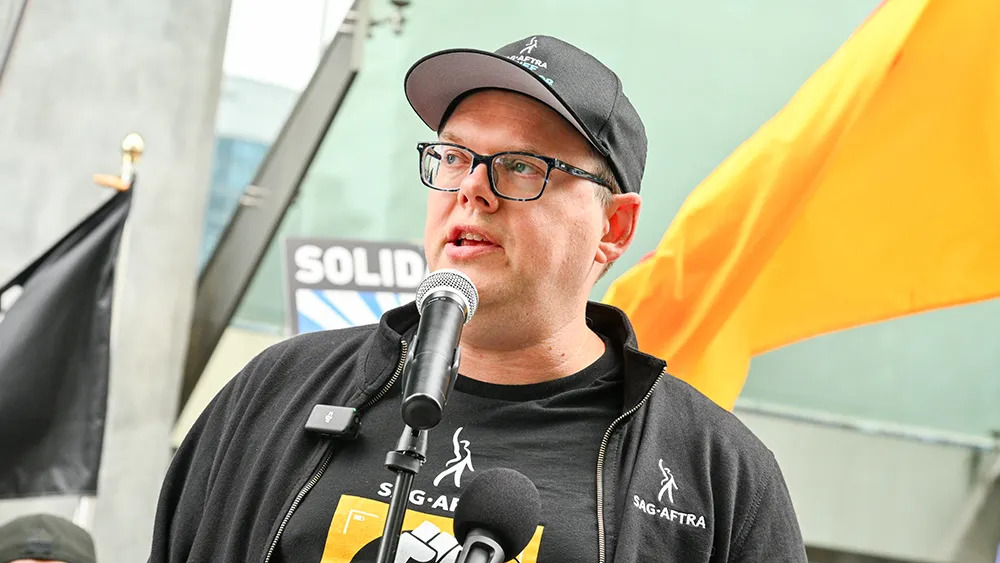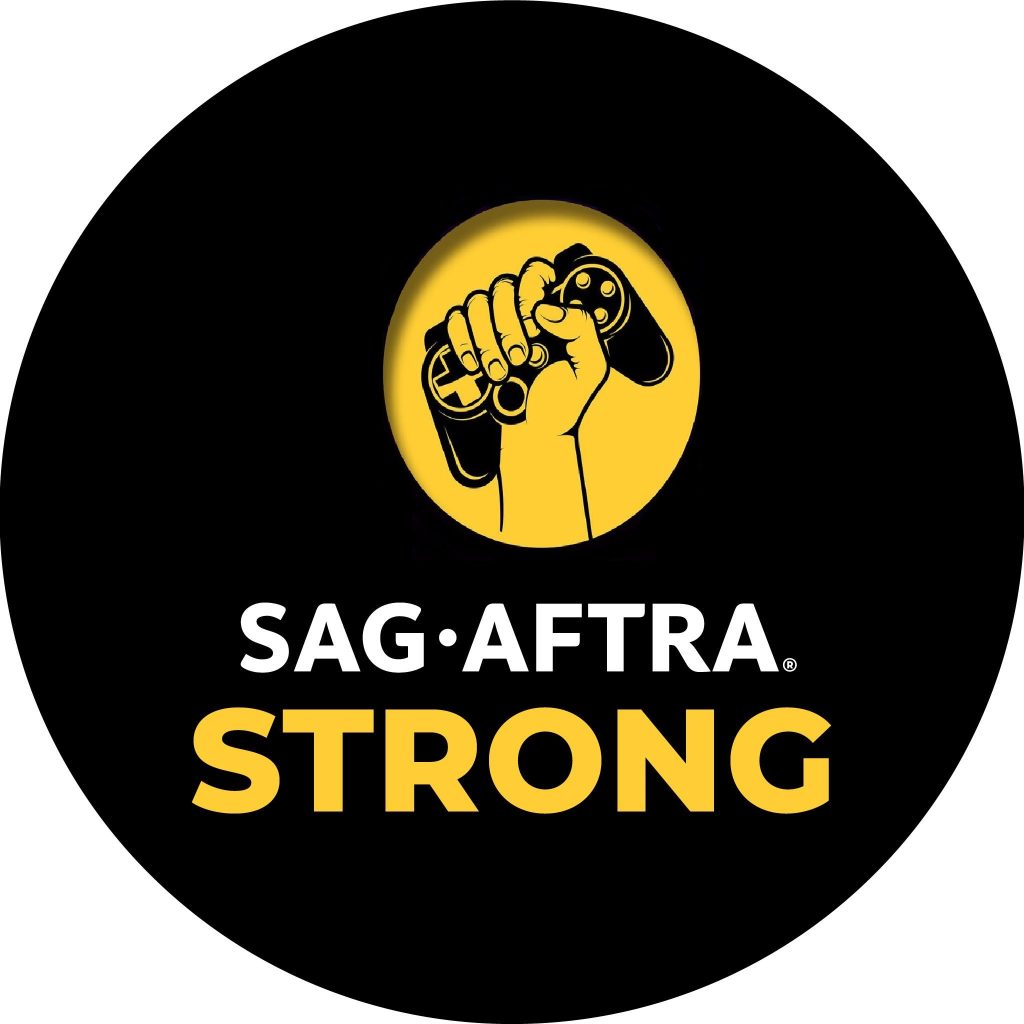The entertainment industry is bracing for another potential labor disruption as the Screen Actors Guild-American Federation of Television and Radio Artists (SAG-AFTRA) signals a high likelihood of striking against major video game companies in the coming weeks. At the heart of the brewing conflict lies the contentious issue of artificial intelligence (AI) and its rapidly increasing presence in the production process.
During a wide-ranging discussion at the South by Southwest (SXSW) festival in Austin, Texas, SAG-AFTRA’s National Executive Director and Chief Negotiator, Duncan Crabtree-Ireland, candidly assessed the prospects of a strike, stating, “We put the chances of union members striking against key game companies at 50-50, or more likely than that we will go on strike in the next four to six weeks because of our inability to get past these issues.”
Crabtree-Ireland’s remarks underscore the union’s growing concern over the potential impact of AI on its members’ livelihoods and the urgent need to establish clear guidelines governing the technology’s use in the industry.
The specter of a strike has loomed large since September of the previous year when an overwhelming 98% of SAG-AFTRA’s members voted to authorize such action against major video game producers, including industry heavyweights like Activision (now part of Microsoft), Electronic Arts, Epic Games, Take-Two Interactive, and Warner Bros. Games. However, negotiations between the union and these companies have stalled, with the AI issue emerging as the primary sticking point.
At the crux of the matter is SAG-AFTRA’s desire to safeguard its members’ interests in the face of rapidly advancing AI technologies. While acknowledging the strong and divergent opinions within the union’s 160,000-plus membership, Crabtree-Ireland emphasized the need for a balanced approach that neither outright bans AI nor allows its unchecked proliferation.
“We would not have succeeded, any more than any union ever in history has been able to stop technology,” he stated, dismissing calls from some members for an outright prohibition on AI’s use in union-covered productions. “Unions that try that approach, they fail and they give up the chance to influence how those technologies are implemented. The fact of the matter is, we’re going to have AI.”
Instead, SAG-AFTRA’s focus has centered on establishing a framework that ensures “consent and compensation” for its members when AI engines utilize their work. Crabtree-Ireland stressed the union’s commitment to ensuring that AI implementation is “human-centered and focused on augmentation [of production], not replacement of people.”
The union’s stance aligns with a broader industry trend, where creative professionals across various fields, from digital art to music, have grappled with the disruptive potential of generative AI tools. While some have embraced these technologies as powerful creative aids, others have voiced concerns over the potential erosion of human artistry and the accompanying economic implications.
In late January, SAG-AFTRA announced an experimental agreement with AI voice studio Replica Studios, outlining how AI voices can be used in video games. The one-year trial contract, unanimously agreed upon by a committee of actors who regularly work in the video game industry, sets out conditions and payments to voice actors for creating digital voices and licensing AI voices in video games.
However, the announcement caught some high-profile voice actors off guard, with industry veterans like Elias Toufexis (Deus Ex, Assassin’s Creed) and Steve Blum (Call of Duty, God of War) expressing surprise at not being consulted on the matter. This incident underscores the complex and rapidly evolving landscape that SAG-AFTRA must navigate as AI becomes increasingly prevalent in the industry.
The gaming industry, in particular, has been among the early adopters of generative AI, with a recent study indicating that 86.7% of firms in the sector have already embraced the technology. By 2026, AI is projected to impact an estimated 13.4% of the gaming industry’s workforce, or 52,400 jobs, further heightening the urgency for a comprehensive and equitable framework.
Crabtree-Ireland’s comments at SXSW suggest that the union’s leadership is acutely aware of the potential ramifications of failing to reach an agreement with video game companies on AI-related issues. “We don’t want to go on strike,” he cautioned, “But we’re not going to make a deal with these companies that don’t protect our members from abusive and exploitative uses of AI.”

The union’s resolute stance finds its roots in the hard-fought battle it waged with Hollywood’s major studios during the previous year’s dual strike, which saw SAG-AFTRA and the Writers Guild of America (WGA) engage in a protracted work stoppage. While the resulting agreements established a template for regulating AI in film and television production, the video game industry’s unique characteristics, particularly the extended lifespan of many video game franchises, necessitate tailored provisions.
Crabtree-Ireland revealed that Hollywood’s largest studios had initially hoped to defer substantive discussions on AI regulation until at least the 2026 round of master contract negotiations. However, SAG-AFTRA’s decision to introduce a detailed AI proposal during the June 2023 negotiations caught the Alliance of Motion Picture and Television Producers (AMPTP) by surprise, ultimately contributing to the lengthy work stoppage that followed.
As the impasse drags on, the video game industry finds itself in the crosshairs of a potential labor disruption that could have far-reaching consequences. While both sides undoubtedly recognize the inevitability of AI’s continued integration into the production process, the key challenge lies in striking a delicate balance between embracing technological innovation and safeguarding the interests of the human talent that remains at the heart of the creative endeavor.
In the coming weeks, all eyes will be on the negotiating table as SAG-AFTRA and the major video game companies attempt to bridge the divide and forge a mutually acceptable path forward. The outcome of these negotiations will not only shape the immediate future of the industry but also set a precedent for how other sectors navigate the rapidly evolving AI landscape.

As the clock ticks down, the looming possibility of a strike serves as a stark reminder of the high stakes involved and the profound impact that AI is poised to have on the entertainment industry and the broader creative economy. Whether through negotiation or confrontation, the resolution of this standoff will undoubtedly reverberate far beyond the confines of the video game world, offering valuable insights into how society can effectively harness the transformative potential of AI while preserving the essential human elements that lie at the heart of artistic expression.
Copyright©dhaka.ai
tags: Artificial Intelligence, Ai, Dhaka Ai, Ai In Bangladesh, Ai In Dhaka, USA, SAG-AFTRA



